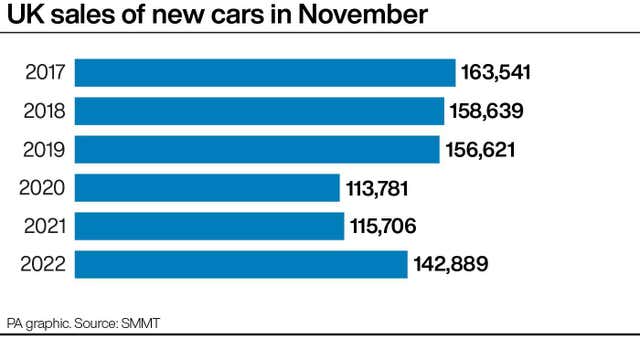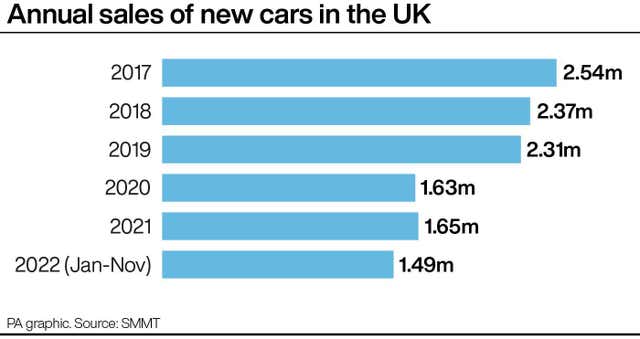New car market grows for fourth month in a row
Preliminary figures show the number of new cars registered in November was more than 20% higher than the same month last year.

The UK’s new car market has recorded a fourth successive month of growth.
Some 142,889 new cars were registered in November, up 23.5% on the same month last year, according to the Society of Motor Manufacturers and Traders (SMMT).
Plug-in cars such as pure electrics and plug-in hybrids accounted for more than a quarter of the market.

Overall, registrations last month were 8.8% below pre-coronavirus levels.
The number of new cars registered during the first 11 months of this year is 3.4% down on the same period in 2021.
Supply shortages have largely been blamed for the decline.
The SMMT is calling for urgent Government action to boost electric car charging infrastructure and support the uptake of plug-in vehicles.
Chief executive Mike Hawes said: “Recovery for Britain’s new car market is back within our grasp, energised by electrified vehicles and the sector’s resilience in the face of supply and economic challenges.
“As the sector looks to ensure that growth is sustainable for the long term, urgent measures are required – not least a fair approach to driving EV adoption that recognises these vehicles remain more expensive, and measures to compel investment in a charging network that is built ahead of need.
“By doing so we can encourage consumer appetite across the country and accelerate the UK’s journey to net zero.”

Ian Plummer, director of automotive classified advertising company Auto Trader, said: “Even though sales of electric cars have jumped more than a third in the past year, there are big question marks over how long this will last.
“Our data shows the cost-of-living crisis and high electricity prices are turning people away from EVs.
“Battery EVs accounted for just 19% of our retailers’ sales leads in November compared with more than a quarter in June.”
The SMMT anticipates that more new cars will be sold in 2023 compared with this year, but expects demand to remain below pre-Covid levels.





